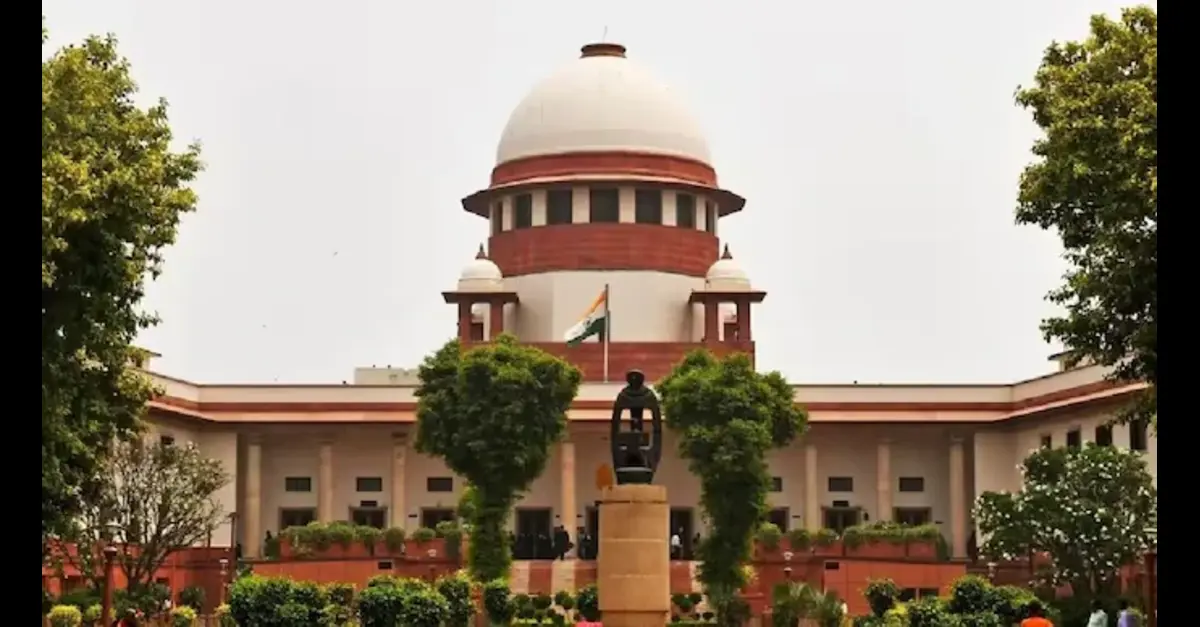Case Name: Amlesh Kumar vs The State of Bihar
Case Number: Criminal Appeal No. ___ of 2025 (Arising out of SLP (Crl.) No. 5392 of 2024)
Date of Judgment: 9 June 2025
Quorum: Justices Sanjay Karol and Prasanna B. Varale
FACTUAL BACKGROUND
This appeal resulted from FIR (No. 545/2022) that named Amlesh Kumar together with his family members under multiple IPC sections starting with 341, 342, 363, 364, 498A and other sections after dowry harassment claims and the disappearance of the appellant’s wife. The complainant who is the missing woman’s sister stated that her sister experienced dowry demands while possibly suffering harm at the hands of the accused family members. The appellant asserted his wife disappeared throughout travel and subsequently filed an official missing person complaint.
Repeated searches failed to locate the wife. Co-accused reportedly gave confessional statements implicating themselves in throwing the woman into the river Saryu. The High Court decided to consider the appellant’s request for bail after hearing from the Sub-Divisional Police Officer (SDPO) Mahua about the planned narco-analysis tests of all accused and witnesses. The appellant challenged this order before the Supreme Court because it violated the constitutional rights established in Selvi & Ors. v. State of Karnataka [(2010) 7 SCC 263].
ISSUES FOR DETERMINATION
- Whether the High Court was justified in accepting the investigating officer’s submission for conducting a narco-analysis test on the accused.
- Whether a voluntary narco-analysis report can be the sole basis of conviction.
- Whether an accused has an indefeasible right to seek a narco-analysis test voluntarily.
LEGAL PROVISIONS
- The Constitution of India protects citizens through Article 20(3) and Article 21.
- Section 27 of the Indian Evidence Act, 1872 contains particular legal provisions which are in effect.
- The Code of Criminal Procedure, 1973 has Section 439 as an essential part of its legal framework.
- The legal cases of Selvi v. State of Karnataka and Sangitaben Shaileshbhai Datana v. State of Gujarat serve as important precedents.
APPELLANT’S CONTENTIONS
The appellant maintained that the High Court’s decision breached constitutional protections regarding self-incrimination together with bodily autonomy. The appellant used Selvi as a basis to claim that forced administration of narco-analysis tests breaches Articles 20(3) and 21 and should be prohibited particularly in bail cases because these methods lack investigative value.
RESPONDENT’S CONTENTIONS
The State defended the order by explaining modern investigation methods remain necessary to expose facts in delicate criminal investigations. However, it was unable to reconcile this approach with the mandatory constitutional safeguards against compelled techniques.
ANALYSIS
The Supreme Court categorically held that the High Court erred in accepting the proposal for compulsory narco-analysis tests. The Court used Selvi as its precedent to confirm that forced narco-analysis remains illegal and cannot be used under any investigation reason.
The Court requires that all voluntary narco-analysis procedures should follow established protocols which include obtaining judicial approval and legal counsel and administration by independent professionals. The Court made clear that test outcomes cannot be admitted directly into evidence because they function only as tools which produce evidence that Section 27 of the Evidence Act permits. The Court explained that the accused does not gain automatic entitlement to narco-analysis because the court retains full discretion to decide this matter by evaluating all relevant facts.
JUDGMENT
The Supreme Court set aside the impugned order of the High Court dated 9 November 2023. It held the High Court had no authority to accept the SDPO’s submission for compulsory narco-analysis, particularly during bail proceedings. The matter was remanded for reconsideration of the bail application strictly in accordance with law.
CONCLUSION
This judgment is a significant reaffirmation of constitutional protections in criminal jurisprudence. The Court struck down the forced investigative technique while establishing precise guidelines for voluntary narco-analysis to safeguard individual rights against investigative zeal. The decision fortifies the importance of proper legal procedures while reinforcing judicial boundaries during initial stages of the legal process.
“PRIME LEGAL is a full-service law firm that has won a National Award and has more than 20 years of experience in an array of sectors and practice areas. Prime legal falls into the category of best law firm, best lawyer, best family lawyer, best divorce lawyer, best divorce law firm, best criminal lawyer, best criminal law firm, best consumer lawyer, best civil lawyer.”
WRITTEN BY HARINI S


